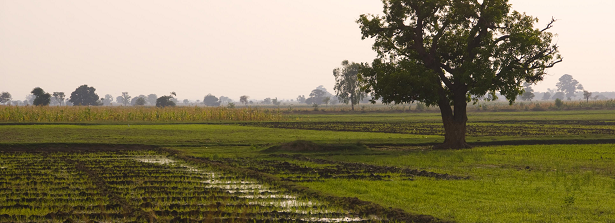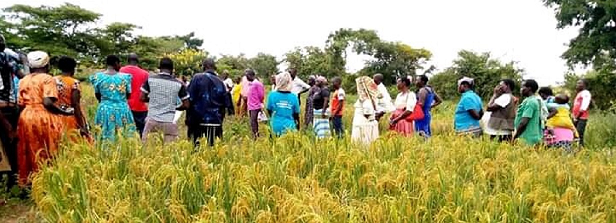Enhancing Rice-Greengram productivity in Northern Uganda (ERIGNU)

Duration: 01 January 2017 to 31 December 2019
Project information
Aim: The aim of this project “Enhancing Rice-Greengram productivity in Northern Uganda (ERIGNU)” is to introduce greengram in rice cropping system to increase land productivity, improve soil fertility, and enhance farmer’s income and nutrition among women and youth. Poverty levels in the northern Uganda remain the highest in the nation. Rice, a strategic crop in the national agricultural development strategy and a key crop in the multi-annual-strategic plan of the Dutch Embassy in Kampala has very low average yields from farmlands in northern Uganda. In the region, smallholder rice farmlands are cultivated every season with little soil nutrient replenishment. The land is often left un-utilized in between rice crops resulting in reduced land productivity. With ERIGNU up to 1,500 smallholder farmers will be assisted to improve their household incomes, food and nutrition security.
Objectives: Overall objective is to contribute to sustainable access to nutritious food by women, children and youth in northern Uganda. The project is expected to result into increased rice and greengram production, improved food and nutrition security, increased household income and reduced gender economic imbalance at household level.
Expected outputs include:
- Established and understood factors at farm level that influence partial and total adoption of rice-greengram cropping in northern Uganda.
- Increased farmers’ access to quality seeds through a farmer-centred seed multiplication and business model for both rice and greengram.
- Increased on-farm yields of rice through integrated soil management like rice–greengram rotational cropping, adaption of improved varieties and use of appropriate farming practices.
- Improved farmers’ access to information on rice-greengram value chains through an ICT-enabled knowledge management framework.
- Enhanced women’s economic power and decision making participation at household level, through community advocacy programmes, grantee economic returns to women effort via group marketing and sales of rice produce.
Method: The first year focuses on project inception activities, procurement of materials, understanding the action research context through baseline studies, development of knowledge products, establishment of an ICT platform and initial adaptation studies. Year two will focus on scaling up adaptation studies, participatory field trials on rice-greengram rotational cropping and greengram rhizobium inoculation for at least two cropping seasons. In addition, capacity building of farmers and enhancing the ICT platform and knowledge co-creation of project processes. Finally, the third year will focus on dissemination of technologies, establishment of sustainability strategies, evaluation of the technology uptake, and report writing.
Country: Uganda.
Dutch policy goals: Eradicating existing hunger and malnutrition (‘people’); Promoting inclusive and sustainable growth in the agricultural sector (‘profit’).
Progress reports
Year 1: 450 farmers of which 320 are women have been mobilised into 15 groups and trained in the rice-green gram cropping systems, gender issues and basic agribusiness. Factors in the community which influence the adoption of rice-greengram cropping in northern Uganda has been established, these are key in shaping policy on promotion of rice and greengram production in the region. A community based seed system for both rice and greengram is being established, 15 farmer seed producer groups have been selected and initial training provided, a seed value chain system has been designed awaiting the validation by stakeholders and operationalization. New varieties for rice (3) and greengram (2) have been identified through a community selection exercise. The farmer ICT profile and community characteristics have been established and the mobile-web ICT apps developed and tried with a few selected farmers. The project website is operational and a number of stakeholder engagement conducted.

